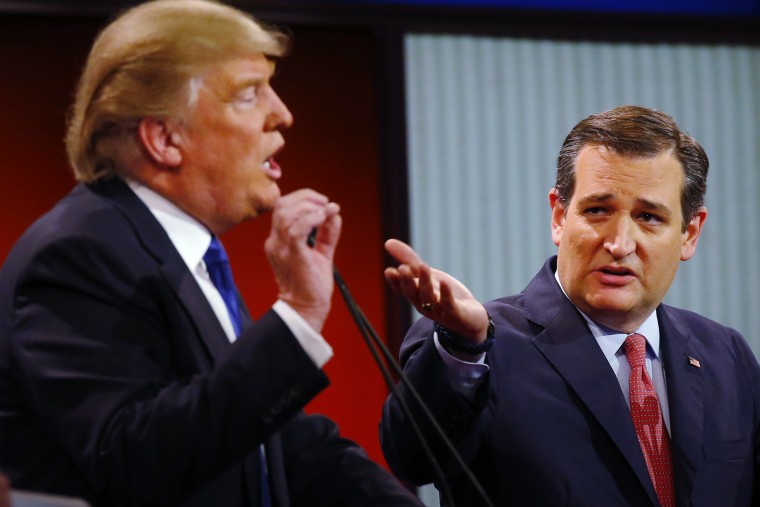It's been five weeks since Marco Rubio suffered a humiliated defeat in his own home state, forcing his exit from the Republican president race, and creating the three-candidate contest that we see today. His exit, however, hasn't had quite the impact it was expected to.
The Florida senator easily had the most Republican endorsements of anyone in the party's 2016 field. If "the party decides," the party decided ... on Rubio. His failure, however, meant the GOP establishment's backing could shift to a new favorite. Who would be the beneficiary?
As it turns out, the answer, by and large, is no one. In the five weeks since Rubio quit, Ted Cruz has picked up support from three governors, two senators, and seven U.S. House members, which isn't bad, but which is hardly a tidal wave of new backers (and some of these new "supporters" have grudgingly gone with Cruz via process of elimination). Over the same period, Donald Trump has received endorsements from one governor and three House reps, while John Kasich has added one Senate backer and one House backer.
And that's it. The entire rest of the party's top echelon of elected policymakers has decided -- even now, in mid-April -- to sit this one out. There are 53 Senate Republicans other than the one in the race, and as of this morning, 48 of them haven't announced their support for any of their party's presidential hopefuls. There are 30 Republican governors other than the one in the race, and 20 of them are still on the sidelines.
Even in the far-right U.S. House, where there are a whopping 246 Republicans, only 49 of them -- roughly one in five -- have thrown their support behind one of the GOP candidates. The other 80% of the House Republican conference is sitting on its hands.
There really is no modern precedent for this. In the modern era, the race for the GOP nomination is usually nearing its end by now, and the party's leading elected officials have always extended their support to someone by this point.
But not this year. For all the chatter about the Republican apoplexy surrounding Trump, most of the party establishment still hates Cruz, and doesn't see the point of supporting Kasich, so party officials have chosen to remain spectators in their own party's presidential nominating contest. Some won't even bother going to the convention.
When we talk about 2016 being different, we're referring to all sorts of oddities, and this is certainly one of them.
